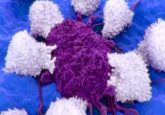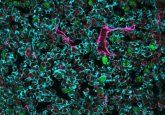Gene variant may lead to increased risk of cancer among African–Americans
African–Americans diagnosed with common types of cancer typically experience lower survival rates and shorter survival periods. Recently, researchers from The Wistar Institute (PA, USA) have identified a single gene variant that is restricted to African and African–American populations, which may cause cancer resistance along with increased risk of the disease. The results of the study were published in the journal Genes and Development.
“We may finally have a truly genetic explanation for why African–Americans are more prone to a variety of cancers,” commented Maureen Murphy, senior author of the Wistar study. “This is a variant that has never been observed in Caucasian populations, so identifying people who have this variant may be crucial for providing improved prognosis and personalized treatment that will lead to better outcomes.”
The team studied the S47 variant of p53, a tumor suppressor gene that is mutated and activated in most cancers. The variant is carried only by individuals of African descent, with approximately 8% of Africans and 2% of African–Americans harboring the variant.
Murphy and colleagues utilized a mouse model to study the effect of the S47 variant in otherwise genetically identical animals. The business development team at Wistar are taking steps to make the new model system widely available for lab groups investigating novel treatments for patients with the S47 genetic variant.
The researchers found that this form of p53 is impaired at some functions. More surprisingly, they observed that spontaneous cancer occurred in 80% of the mice with the variant, with liver cancer, colorectal cancer and lymphoma occurring most frequently. Liver cancer is more common in African–Americans, and colorectal cancer is responsible for approximately 9% of all newly diagnosed cases of any type of cancer in African–Americans.
“Validation of these results in humans will require a large population to determine the significance it has on cancer risk among those of African descent,” Murphy commented. “However, we now have some of the strongest evidence ever obtained for a genetic basis for this disparity and a larger, population-based study is warranted.”




